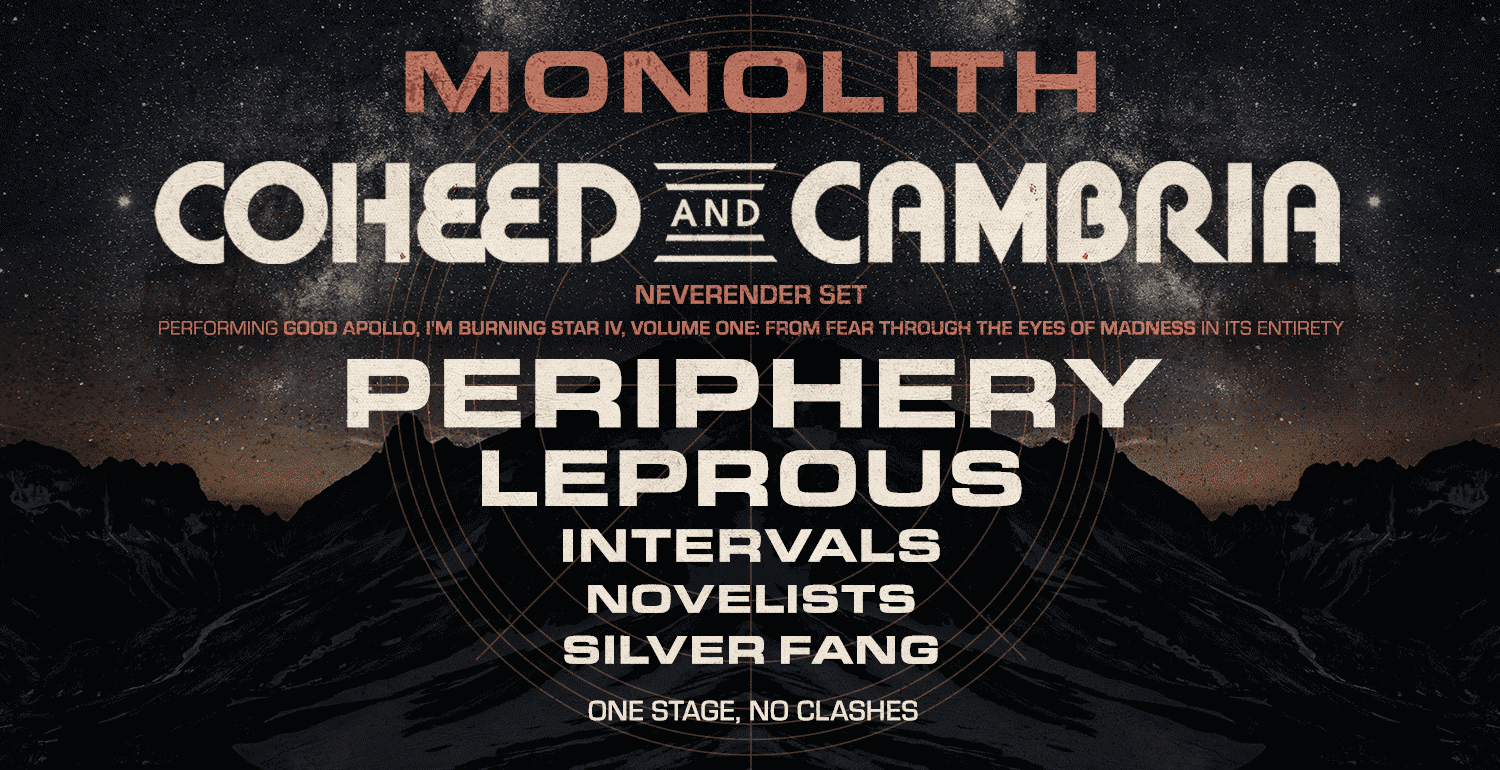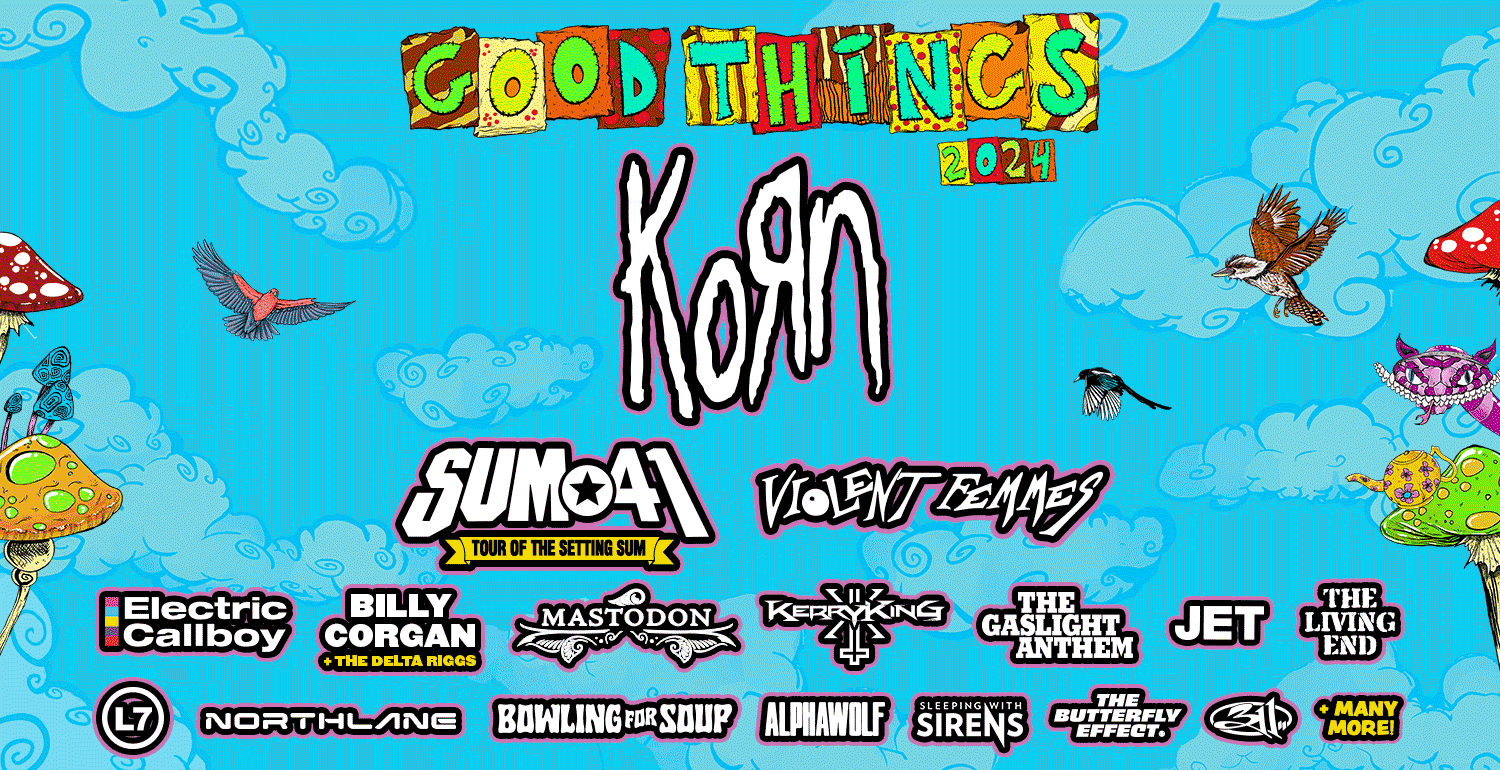By Kris Peters
It is hard to stay humble when you were both directly and indirectly involved in the creation of a metal movement that started in the 1980’s and continues today with no sign of abating. To be involved in, let alone a driving force of the original birth of thrash metal is a great honor, but to still be an integral part of the machine today is akin to Royalty.
Death Angel, from California, are often referred to as one of the key bands in the Bay Area thrash metal movement and have provided the backbone and inspiration to a movement that became a feeling that became a way of life. Despite this, guitarist and founding member Rob Cavestany says he rarely has cause to reflect on his and the bands achievements.
“Not really, unless I’m being asked to talk about it,” he said, “because it’s more so I have my eye on the moment and the future. There are a lot of times when people bring it up so in those moments I relive it and realise and just feel fortunate. I’m proud to be a part of it and any contribution we’ve had has been a dream come true. It’s what we wanted to do when we were kids forming the band so it’s pretty amazing.”
As the only original member still in the band (Mark Osegueda joined two years later), Rob says that while it is a constant source of pride, it can also be a burden.
“You get the good and the bad,” he conceded. “I’m responsible for a lot of things so if anything goes wrong it’s my fault but if it’s right I’m like ‘can I get a pat on the back?’(ha ha) So it comes with the territory but I’m used to it because I’ve kind of always been in that position in the band from the start so I just take it for what it is and do the best I can.”
With a career spanning 25 years, Death Angel have lived the highest of highs and wallowed in the lowest of lows, but aside from one serious hiccup that almost cost drummer Andy Galeon his life and the band their career, Rob says that the experience has been predominantly positive.
“There’s always things you would have done differently,” he mused. “The plain hindsight is 20/20 as they say but I also accept that everything happens for a reason and one thing is a stepping stone to the next so I don’t think anything could have happened without the thing that happened before it and with that said I’ll take the good with the bad. I’ll take the tears with the laughter. The only one single thing I would have wanted to not happen was the bus accident that we got into in 1990 that derailed us and caused Andy to have really bad injuries and the hell he has had to go through because of that.”
The ramifications of that near fatal accident reverberated through Death Angel for the next decade, with the band ceasing to exist as a musical entity. In the interim, Rob formed The Organization, which was basically Death Angel minus Osegueda and vastly different in sound, playing more funk and alt – rock as opposed to the thrash style his former band had pioneered.
Osegueda returned with Rob, Andy and Michael Isaiah on bass as Swarm, and this reuniting of the core members of Death Angel provided the impetus needed when Rob was asked to reform the band to play at a benefit concert Thrash of the Titans for Testament vocalist Chuck Billy.
Reforming without guitarist Gus Pepa who was out of the country, what was supposed to be a one off show quickly spiraled into something more.
“We had no plans of reuniting whatsoever,” Rob stressed, “but Thrash of the Titans was happening and Chuck phoned me personally and spoke to me and at that point the cause was bigger than the reason to not do it so we got back together solely for that one moment and that one performance and it just happened to carry on for another fifteen years (haha). One thing led to the next and the love of music took over and honestly our fans that were still there after all those years pulled for us and our record label Nuclear Blast also were keen on recording us and really believed in us and encouraged us to write and give it a go and all these factors contributed to what it is today.”
Before the accident, Rob had said in an interview that he was considering changing the name of the band, mainly due to concerns that public perception and the images it conjured could have been offering a negative, not entirely accurate overview of what the band stood for.
Although this had been discussed, when it came time for the second coming of Death Angel he had shelved any plans to implement the change.
“There were a number of reasons for that,” he reflected. “For one thing, whatever the restraining parameters or the closed mindedness of what was happening in the 80’s had definitely changed by the 2000’s, so what was once considered to be taboo or too much or too heavy or too intense or too controversial was now nothing so that was a non-issue. Secondly, at that point of time we had established ourselves as Death Angel in such a solid way with the first three albums that when we reunited in 2001 there was no question that we should keep the original name from where we left off.”
None of the members of Death Angel were over 20 years of age when they released their debut album The Ultra Violence, and Rob agrees that although it was a definitive moment in his life and career, back then it was a musical era which was vastly different to that of today.
“That was one of the most exciting and proudest moments I have experienced,” he said. “That moment when you’re holding your record in your hand and I do mean record, like vinyl and that was like…. Back in those days to put out a record it had to be legit. You couldn’t just go on your computer and make a CD. You had to have recorded a proper demo tape at a recording studio and gotten enough momentum going to get the attention of the labels and played enough live shows to be noticed and it was a whole different game. To achieve that at that age was mind blowing and until this day that remains as one of my favorite records of ours and definitely the core foundation of our music and our style and our existence.”
Death Angel this week released their eighth studio album, The Evil Divide, and Rob says that fans of the band will recognize the album as a culmination and continuum of their preceding work.
“The Evil Divide has come a long way from The Ultra Violence,” he offered. “We’ve had many experiences and tours and albums and laughs and many tears have gone by in the time in between and we have just evolved to this album. It is absolutely my other favorite album other than Act III or The Ultra Violence and it’s very refreshing for us to be able to capture that evolution in our music.”
When it came time to choosing a title for the record, Rob says that all the band needed as inspiration was to look at the world around them and the grinds of everyday life.
“It’s referring to a lot of things and one only needs to listen to the songs and hear the lyrics and look at the album cover and hear the title and it should not be hard to put it all together. It’s absolutely directed at current world events and you can read in to it and see what we’re talking about and if at some point you can’t decipher it then you’re really high brother (haha). It’s one of those things that doesn’t need much explaining; it’s pretty apparent when you get into it.”
For a man who has left such an indelible mark on musical history, Rob is again humble when asked what he would like to leave as his musical legacy.
“Whatever is left is what I’m hoping to leave,” he said matter of factly.
“I hope to be remembered as a musical force and one to be reckoned with and that we had our own sound and our own style and we just did what was true to our heart and that’s about it man. It’s just all left in the albums to be heard forever more.”
“And we’re nowhere near done yet either.”
The Evil Divide is out now via Nuclear Blast Records.
The Evil Divide: Track Listing
01. The Moth
02. Cause for Alarm
03. Lost
04. Father of Lies
05. Hell to Pay
06. It Can’t Be This
07. Hatred United/United Hate
08. Breakaway
09. The Electric Cell
10. Let the Pieces Fall
11. Wasteland













